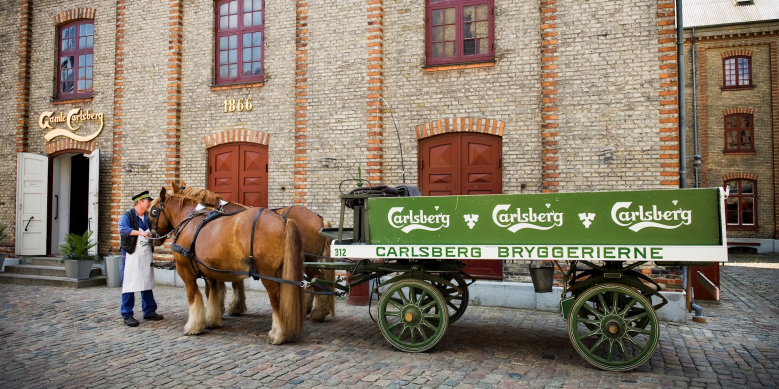By Jean-Jacques DeLisle, contributing writer
Something unexpected is brewing in Carlsberg distilleries, and it’s all thanks to artificial intelligence (AI). A new project headed by Jochen Förster, a professor of yeast fermentation, proposes using a multitude of advanced sensors and AI to craft the beer of the future.

AI could create your next pint. Image source: Microsoft.
Self-proclaimed the “Beer Fingerprint Project” (BFP), Microsoft has teamed up with the Carlsberg, iNano at Aarhus University, DTU Chemical Engineering, and Innovation Fund Denmark to use AI to map the delicate aromas of thousands of different beers and yeasts. The information garnished from the high-tech sensors will be used to create new fermentation techniques that could change the future of beer as we know it.
Currently, most breweries use human “smell scientists” to determine the nuances and aromas produced by beer and its organic precursors, but Carlsberg has decided that this new technique will be much quicker. Förster estimated a 30% decrease in production time of the usual development time to craft new beer, which currently takes around eight to 24 months. “It’s going to be extremely beneficial for us,” he told the Financial Times. “It’s about reducing time and cost to develop new beers, especially for innovative beers with new flavors.” With over a thousand different samples being produced daily, using machines would be quite handy and would most likely involve less alcohol consumption for employees.
So how can machines make beer tastier? Well, this three-year-long endeavor by the BFP to manufacture a commercially viable “beer fingerprinter” will not only make creating new flavors faster but completely different entirely. With the millions of dollars being poured into this project, it is totally plausible that soon these electronic noses will have the ability to pick up sensitive smells that our outdated fleshy noses cannot even perceive. And once this technology flourishes, other possible applications in completely different fields of science are endless. Mr. Förster said that the sensors could eventually produce essential information about the presence of pollutants in soil, air, or even water. “If it’s working for us in beverages, it can always work for foods, environment, and pharma,” he said.
The sensors will mainly be used by Carlsberg to replace the tedious chromatography and spectrometry process that they now have in place for testing new strains of alcohol-producing yeast long before it’s brewed into a consumable beer. Once these sensors have scanned the smells of these different microorganisms, they will send this data to a machine-learning data cloud platform. AI programs should then be able to ascertain new brewing organisms from this information to help craft new flavors of beer. Eventually with this technology, and the help of willing beer-tasting volunteers, AI might even craft better-tasting beer than we can.
Advertisement
Learn more about Electronic Products Magazine





